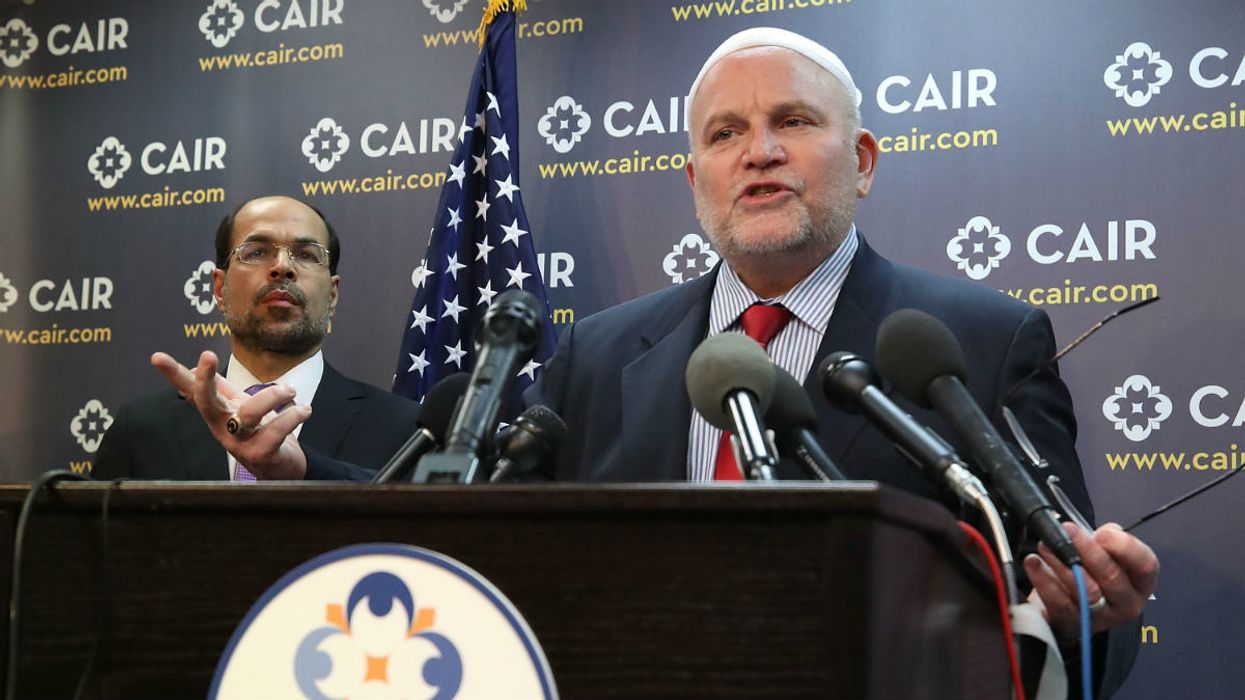
Mark Wilson/Getty Images

Abdirizak Haji Raghe Wehelie has been charged with misleading investigators and obstructing a probe into Al-Shabaab terror.
Last year, a Somali-American man was listed as a plaintiff in a lawsuit filed by the terror-tied Council on American-Islamic Relations (CAIR) against the Trump administration, as part of a concerted, transparent campaign to have a federal judge declare the U.S. government's terrorist screening database as unconstitutional.
Today, that man, Abdirizak Haji Raghe Wehelie, who served as an FBI translator from 2012-15, was charged on multiple counts related to his alleged interference with a federal terrorism investigation.
Wehelie, 66, of St. Burk, Virginia, was arrested over the weekend and charged with seven counts of making false statements to investigators and one count for obstructing a federal investigation. He was scheduled to appear in federal court Monday afternoon in Alexandria, Virginia.
According to the indictment, Wehelie misled investigators when they were scrutinizing a terrorism investigation involving unnamed individuals connected to Al-Shabaab, an Islamic terrorist group that operates in East Africa and controls territory in Somalia.
In August 2018, CAIR sued the Trump administration on behalf of the Wehelie family, which included Hawa Wehelie, which court papers identified as Wehelie's daughter.
CAIR's lawsuit argued that counterterrorism measures imposed by the U.S. Customs and Border Protection amounted to "a kind of second-class citizenship."
The terrorist screening database is considered an essential element of the vetting process for individuals entering the United States.
Rick Kopel, a former FBI principal deputy director, has testified that the database plays "a critical role in securing our borders and the safety of the American people by providing to the nation's entire screening and law enforcement communities the identities of known and suspected terrorists."
CAIR continues to advocate for the Wehelie family and for the removal of the federal database. Last month, the group continued to press forward, and declared that the Wehelie family was unfairly targeted and humiliated by federal authorities.
A hearing on CAIR's lawsuit against the U.S. database was held on April 4 in Arlington, Virginia. The judge has yet to make a decision on the case.
It remains unclear why Wehelie remained on the FBI's payroll for several years, given his family's well-established connections to radicalism.
In 2010, both of his sons were temporarily placed on the federal no-fly list and denied entry into the United States, after the two traveled to Yemen. The Hamas-tied CAIR and other advocacy groups put relentless pressure on the Obama administration to allow both sons to return to the United States. In their efforts to bring the sons home, CAIR held news conferences in Washington, D.C., and sent letters to then-Attorney General Eric Holder to raise awareness about the issue.
In 2017, Yusuf Wehelie — one of Wehelie's sons, who had been originally banned from entry — was sentenced to 10 years in prison for attempting to illegally transport high-powered weapons. In interviews with undercover informants, he discussed his willingness to target U.S. military recruitment centers on behalf of the Islamic State terrorist group.